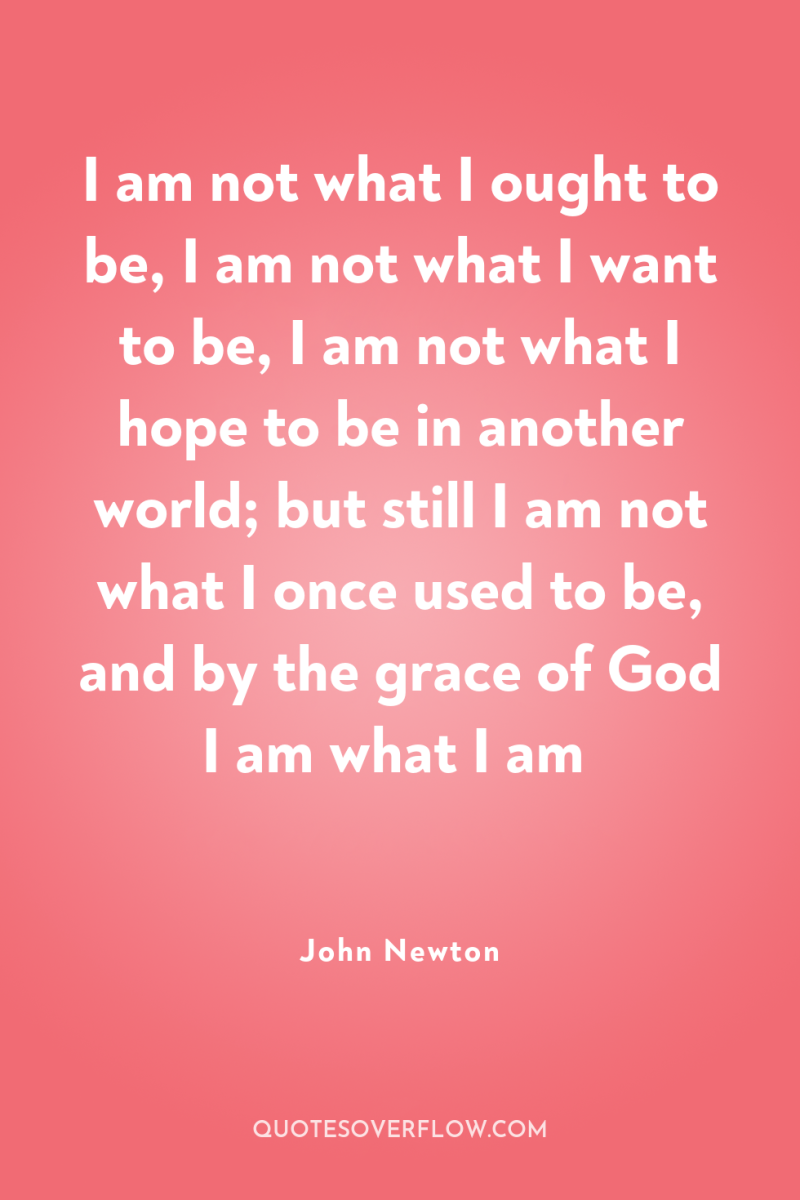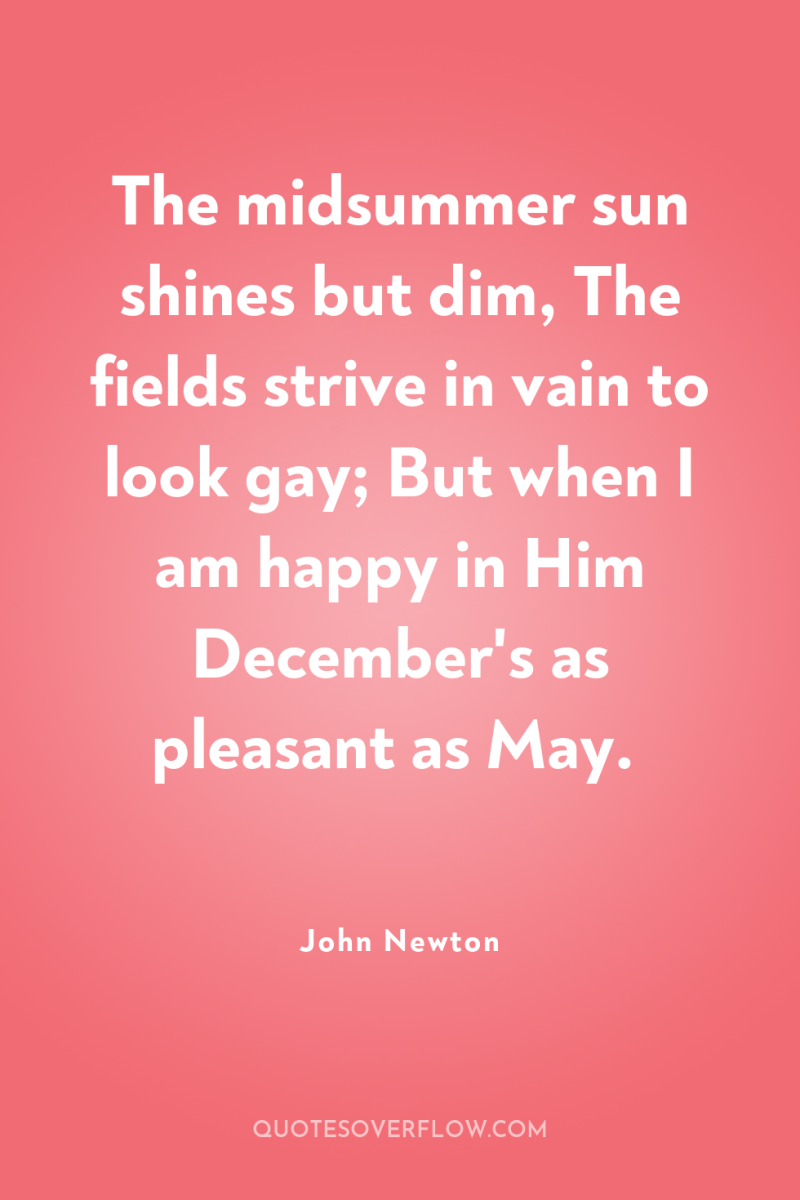
1
Although my memory's fading, I remember two things very clearly: I am a great sinner and Christ is a great Savior.John Newton

2
I am not what I ought to be, I am not what I want to be, I am not what I hope to be in another world; but still I am not what I once used to be, and by the grace of God I am what I amJohn Newton

3
The midsummer sun shines but dim, The fields strive in vain to look gay; But when I am happy in Him December's as pleasant as May.John Newton
4
If we seem to get no good by attempting to draw near to Him, we may be sure we will get none by keeping away from Him.John Newton
5
Prayer is the great engine to overthrow and rout my spiritual enemies the great means to procure the graces of which I stand in hourly need.John Newton
6
You are coming to a King Large petitions with you bring For his grace and power are such None can ever ask too much.John Newton
7
Beyond our utmost wants His love and power can bless To praying souls he always grants More than they can express.John Newton
8
The spirit of prayer is the fruit and token of the Spirit of adoption.John Newton
9
The Christian ministry is the worst of all trades but the best of all professions.John Newton
10
We can easily manage if we will only take each day the burden appointed to it. But the load will be too heavy for us if we carry yesterday's burden over again today and then add the burden of the morrow before we are required to bear it.John Newton